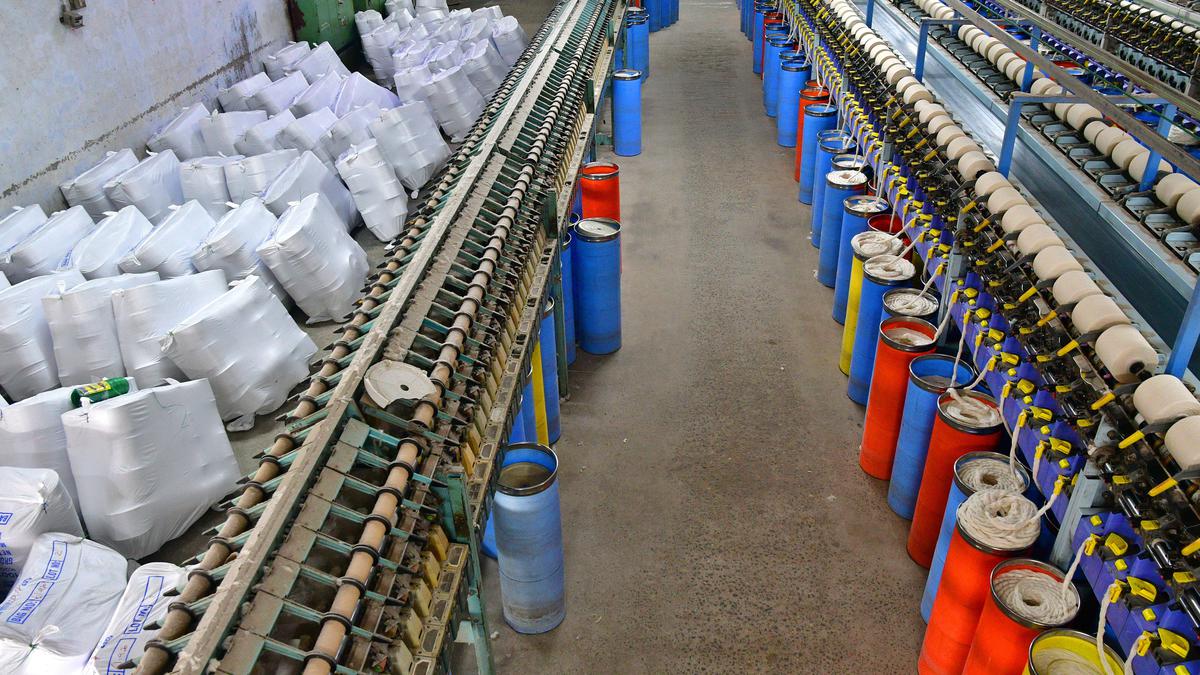
Openend spinning mills in Tamil Nadu suspend production
The Hindu
openend spinning mills in Tamil Nadu stopped production of July 10 due to high production costs
Over 400 openend spinning mills in Tamil Nadu suspended operations on Monday, July 10, as production costs had turned unviable for the mills.
G. Arulmozhi, president of Openend Spinning Mills’ Association, told The Hindu the strike had resulted in loss of ₹40 crore a day as nearly 30 lakh kg of yarn was not produced by the mills on Monday.
Most of the openend spinning mills, which are present in large numbers in Vellakoil, Dindigul, Mangalam, Palladam, and Sulur, are medium or small-scale and are LT CT electricity consumers. Last year, the Tamil Nadu Generation and Distribution Corporation introduced peak hour charges, increased current consumption charges, and hiked the demand charges. The per unit cost paid by LT CT consumers is higher than HT consumers. “These units are shelling out almost ₹70,000 more a month because of higher power charges,” he said.
Further, cotton waste prices are increasing for the last 10 months though raw cotton prices have reduced.
With higher production costs, openend spinning mills in Tamil Nadu are unable to compete with the units in Punjab and Haryana that are now selling yarn in Tamil Nadu at ₹5 a kg less than the price quoted by the mills here.
“The north Indian mills are bearing ₹10 a kg transport cost and still offering at ₹5 a kg lesser cost. We are unable to compete with these mills. Already about 20 mills have closed down,” he said.
M. Jayabal, president of Recycle Textile Federation, said fabric woven using virgin cotton yarn was sold for ₹200 to ₹4,000 a metre depending on quality. However, grey cloth produced from the openend yarn, which was manufactured from waste cotton, cost just ₹28 - ₹50 a metre. In such a scenario, increasing waste cotton price to almost 72% - 75 % of virgin cotton had increased production cost. From August last year, the cost of comber noil (waste cotton) was 60 % to 87 % of cotton prices, varying every month. “Our funds are exhausted. For 10 months, we are operating without profit and spending the financial resources on hand,” he said. The mills reduced production during the last 10 months gradually, he said.













